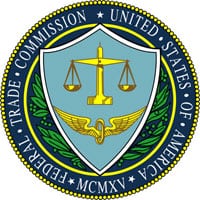Blog post: Online security

Blog post: Online security

![]()
 Hundreds of readers have contacted us to complain about the diet pill free trial scam. Most victims have fallen prey to dubious and deceptive tactics. Some continue losing up to 100 euros a month, creating a significant financial burden for many.
Hundreds of readers have contacted us to complain about the diet pill free trial scam. Most victims have fallen prey to dubious and deceptive tactics. Some continue losing up to 100 euros a month, creating a significant financial burden for many.
The most common tactic is to lure consumers with a “free trial” of slimming pills, hiding the fact—in microscopic text—that it’s actually an automatically renewed subscription. Scammers use well-practiced strategies to create a false sense of security.
And in a moment of vulnerability, they strike. Before you realize it, you’ve learned a costly lesson: appearances can be deceiving!
So how can you protect yourself from these scams? And if you’ve already been caught, how can you get your money back?
RULE #1: NEVER SIGN UP FOR A FREE TRIAL OF SLIMMING PILLS — or any other product!
That’s the simplest way to avoid getting scammed.
99.9% of diet pill free trials are scams. Do you honestly think these companies are offering you their products out of generosity? Of course not — it’s a well-crafted scam designed to make you lose money!
But if you’ve already fallen for it, WHAT CAN YOU DO?
These scammers are highly trained professionals using sophisticated and profitable methods. They rake in millions each week with their free trial scams. You’re not alone — millions of people have been targeted.
Don’t blame yourself. Stay calm and focus on taking action. This is your first step toward recovering your money.

Start collecting any relevant details. Use a notebook to organize this information:
Keep this documentation handy, and log every phone call and email. You’ll need this to fight the free trial scam.
Now that you know you’ve been signed up for automatic charges, your first step is to contact the company directly.
This won’t be easy — they often make cancellation as difficult as possible.
If it’s a UK company (as many diet pill scams are), the number might display as UK-based, but call centers are often located in the USA, especially in Utah.
Be persistent. Call, wait, and insist until someone answers. You might face long waits, multiple transfers, or abrupt hang-ups. Stay calm and keep trying.
Once connected, remain polite but firm. The agent is just an employee following a script, not your enemy. Explain clearly that you were tricked into a subscription and that you demand immediate cancellation and a refund.
Expect delays: most agents don’t have the authority to cancel or refund. Keep pressing. Their goal is to discourage you — your goal is to cancel and get your money back.

If the company operates from the USA, it must comply with strict Federal Trade Commission (FTC) rules.
You’re likely protected if:
The FTC takes these scams seriously. Companies caught violating regulations face heavy penalties.
Use this to your advantage: threaten to report them to the FTC if they don’t cancel and refund immediately.
Learn more via the FTC: FTC Free Trial Guide.
Mentioning the FTC often convinces companies to process cancellations and refunds to avoid legal trouble.
In the UK, the Office of Fair Trading (OFT) enforces regulations.
If you purchased online from a UK company, they were legally required to provide:
This information must be clear and confirmed in writing (such as in a confirmation email).
If you didn’t receive this information, your contract may be void.
PO Box addresses are insufficient — if the company doesn’t provide a physical address, the contract is invalid.
Learn more via the Office of Fair Trading.

If the company refuses to refund you, contact your bank or credit card provider.
Explain that unauthorized charges have been made to your account. This applies if the company violated FTC or OFT rules.
If you willingly signed up but didn’t read the terms, cancellation may still be possible, but refunds are less likely.
Regardless, you can revoke authorization for further charges through your bank or credit card provider. They must block any future withdrawals. Your bank cannot require you to resolve this directly with the merchant.
Be aware, however, that you’ll still owe the company if the contract remains active — so pursue cancellation as well.
Stay calm and focused: your bank is there to protect you.
Hopefully, you’ll escape with minimal damage.
Remember: 99.99% of free trials are scams. Scammers have no ethics, so don’t feel guilty — fight back.
And don’t confuse diet pills themselves with scams. Reputable companies do exist, offering genuine products. That’s why this site exists: to provide honest reviews, tests, and guidance so you can choose products safely.
Check our list of approved pills to avoid further unpleasant surprises.
If this article helps even one person avoid or recover from a scam, it’s a success. Please share this page on forums, Facebook, and Twitter to help others.
Together, we can help put an end to the free trial scam.
DISCLAIMER: This article does not constitute legal advice. We are not lawyers and do not provide professional legal guidance. Always consult a qualified attorney for legal advice if in doubt.